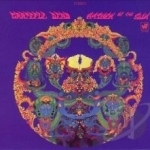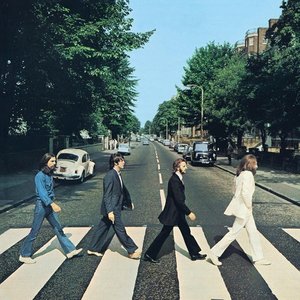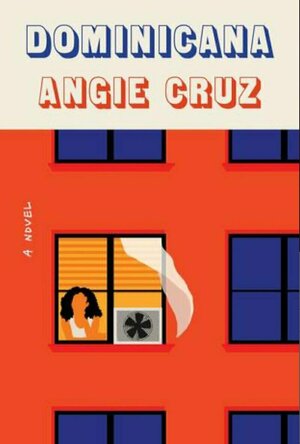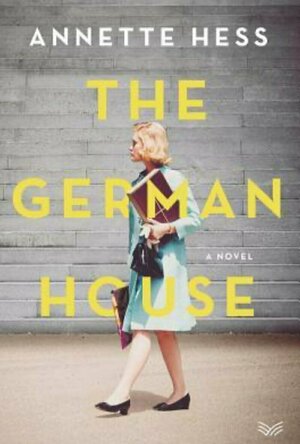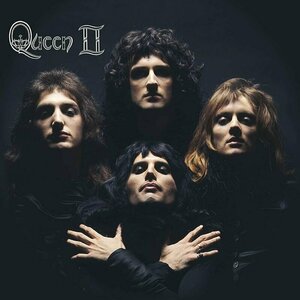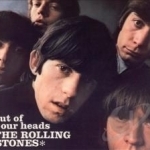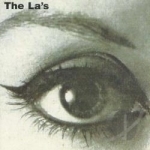Search
Search results
Lee Ronaldo recommended Anthem of the Sun by Grateful Dead in Music (curated)
Jarvis Cocker recommended Abbey Road by The Beatles in Music (curated)
ClareR (6067 KP) rated Dominicana in Books
Sep 8, 2020
Dominicana is the story of 15 year old Ana. Her parents forcibly (well, they don’t give her the option NOT to) marry her off to a much older man, Juan, and they move to New York where she knows no-one else and doesn’t speak any English. I can’t imagine how isolated this child must feel. Ana grows up during this coming of age story. She must learn how to ‘manage’ her husband, who hits her on more than one occasion. She is completely at his mercy, living in a run down flat, told not to let anyone in unless they have an appointment to buy knock-off suits (I tried to think of a better phrase for these suits, but this is all I’ve got!), not to go anywhere except the supermarket by herself, and she’s given no opportunity to learn English - isolating her further.
Probably the best thing that happens to her is when Juan returns to the Dominican Republic to see his brother and sort out family money and properties. Juan’s younger brother, Cesar, stays to look after her and encourages her independence. I wish this part could have been longer. She starts to learn English, makes her own money, and probably unwisely forms an attachment to Cesar. She finds out she’s pregnant just before Juan goes to the Dominican Republic, and seems reluctant to tell him. And I can’t blame her. He really has no place marrying a 15 year old child, least of all making her pregnant.
I liked the way that this story was set against real historical events: Malcolm Xs assassination, the US troops going into Vietnam, the immigration bill where Hispanic people began to migrate to the US in greater numbers, and even more pop-culture events like The Beatles playing for the first time in New York and Dominican players in baseball. These events really helped to paint a fuller picture of Ana’s life. It’s easy for me to sit at home reading a book in 2020, saying that a 14/15 year old should never be able to marry a man much older than she is and be taken to a foreign country, but this book is set in 1965-66. It was a different world then (although I should say that this does still happen in some countries). This is what makes Dominicana such an enthralling read.
Many thanks to the publisher, Flatiron Books, and NetGalley for my copy of this book.
Probably the best thing that happens to her is when Juan returns to the Dominican Republic to see his brother and sort out family money and properties. Juan’s younger brother, Cesar, stays to look after her and encourages her independence. I wish this part could have been longer. She starts to learn English, makes her own money, and probably unwisely forms an attachment to Cesar. She finds out she’s pregnant just before Juan goes to the Dominican Republic, and seems reluctant to tell him. And I can’t blame her. He really has no place marrying a 15 year old child, least of all making her pregnant.
I liked the way that this story was set against real historical events: Malcolm Xs assassination, the US troops going into Vietnam, the immigration bill where Hispanic people began to migrate to the US in greater numbers, and even more pop-culture events like The Beatles playing for the first time in New York and Dominican players in baseball. These events really helped to paint a fuller picture of Ana’s life. It’s easy for me to sit at home reading a book in 2020, saying that a 14/15 year old should never be able to marry a man much older than she is and be taken to a foreign country, but this book is set in 1965-66. It was a different world then (although I should say that this does still happen in some countries). This is what makes Dominicana such an enthralling read.
Many thanks to the publisher, Flatiron Books, and NetGalley for my copy of this book.

Coach Guitar chords tuner tabs
Music and Entertainment
App
Guitar Lessons : Get visual teaching guitar app with colors - We show you how to play popular songs...
ClareR (6067 KP) rated The German House in Books
Dec 30, 2019
The German House is set in Frankfurt in 1963 at the time of the Auschwitz trials. Eva Bruhns is a 24 year old translator, and is asked to translate the testimony of the Polish speaking Jews who were imprisoned at Auschwitz. Eva was a small child during the war, and remembers little of it. She seems to be mostly concerned with her romance and possible engagement to Jürgen Schoorman, a wealthy businessman. However, when David Miller, a Canadian lawyer who is working for the prosecution at the trials, hires Eva as a translator, her world view and her opinion of her parents and the Germans involved in the war, changes. Her parents don’t want to talk about their involvement in the war, and Jürgen doesn’t think that she should be involved in something so distasteful. But this isn’t just a coming of age story. Granted, Eva does grow in this novel. She learns about the collective guilt of the German nation with regards to the Holocaust, and looks at how the children of the war generation reacted to something that was in effect hidden from them. They called it Vergangenheitsbewältigung - the struggle to come to term with and overcome the past. Young Germans wanted to analyse, digest and learn to live with the past, and the Holocaust in particular. Eva can’t understand why her parents will not own up to their share of the guilt.
I really enjoyed this novel. It was hard-going at times, and it did read like a translated novel. It did however, catch the spirit of the time. Eva’s longing to break out of the societal restrictions of the time (for example when she refers to how much she likes a new Beatles song that Jürgen can’t understand, he doesn’t like pop music) and Jürgen’s wish that she stops work as soon as she gets engaged (as a modern woman, I was positively fuming at this point!!).
I was fascinated by the trip the Court makes to Auschwitz - somewhere I’ve never been, and after a trip to Oranienburg (a camp for political prisoners outside Berlin), I feel that I would struggle to go. This was one of the most emotional parts of the book.
The side story involving Eva’s older sister is also fascinating, and I feel portrays the effect of seeing so much violence and hatred as a young child (no spoilers here!).
All in all, after I got used to the writing style, I really enjoyed this. It was an interesting insight into the post-war years, and West Germany’s reaction to the damage and destruction that the Nazis had caused during the Holocaust.
This is well worth a read.
Many thanks to NetGalley and the publisher for my copy of this book to read and honestly review.
I really enjoyed this novel. It was hard-going at times, and it did read like a translated novel. It did however, catch the spirit of the time. Eva’s longing to break out of the societal restrictions of the time (for example when she refers to how much she likes a new Beatles song that Jürgen can’t understand, he doesn’t like pop music) and Jürgen’s wish that she stops work as soon as she gets engaged (as a modern woman, I was positively fuming at this point!!).
I was fascinated by the trip the Court makes to Auschwitz - somewhere I’ve never been, and after a trip to Oranienburg (a camp for political prisoners outside Berlin), I feel that I would struggle to go. This was one of the most emotional parts of the book.
The side story involving Eva’s older sister is also fascinating, and I feel portrays the effect of seeing so much violence and hatred as a young child (no spoilers here!).
All in all, after I got used to the writing style, I really enjoyed this. It was an interesting insight into the post-war years, and West Germany’s reaction to the damage and destruction that the Nazis had caused during the Holocaust.
This is well worth a read.
Many thanks to NetGalley and the publisher for my copy of this book to read and honestly review.

From the Fatherland with Love
Ryu Murakami, Charles De Wolf, Ralph McCarthy and Ginny Takemori
Book
An ambitious, epic dystopian novel - part political thriller and part satire. From the Fatherland,...
Rob Halford recommended Queen II by Queen in Music (curated)
Johnny Marr recommended Out of Our Heads by The Rolling Stones in Music (curated)
Noel Gallagher recommended La's by The La's in Music (curated)

Skoove - Learn Piano
Education and Music
App
Learn piano with Skoove. Have you always wanted to play piano, but didn’t know where to start?...
